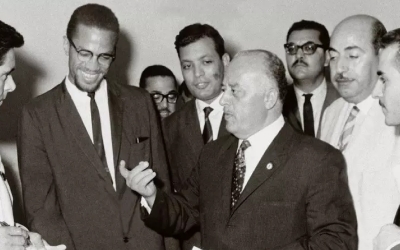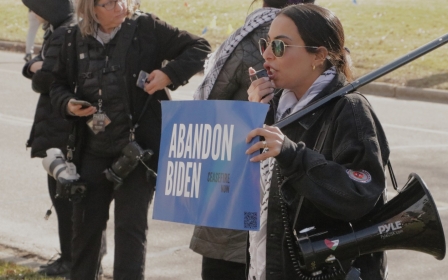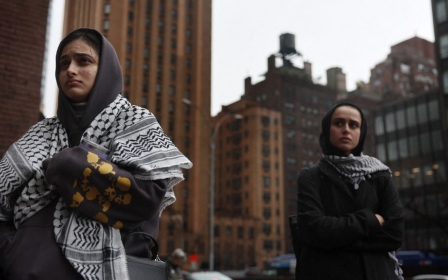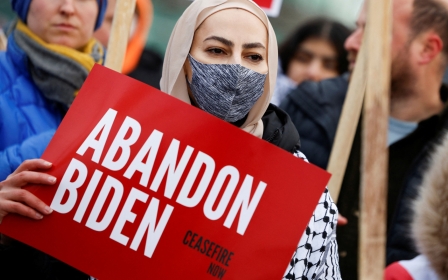US anti-terrorism laws are rooted in anti-Palestinian bias, new report says
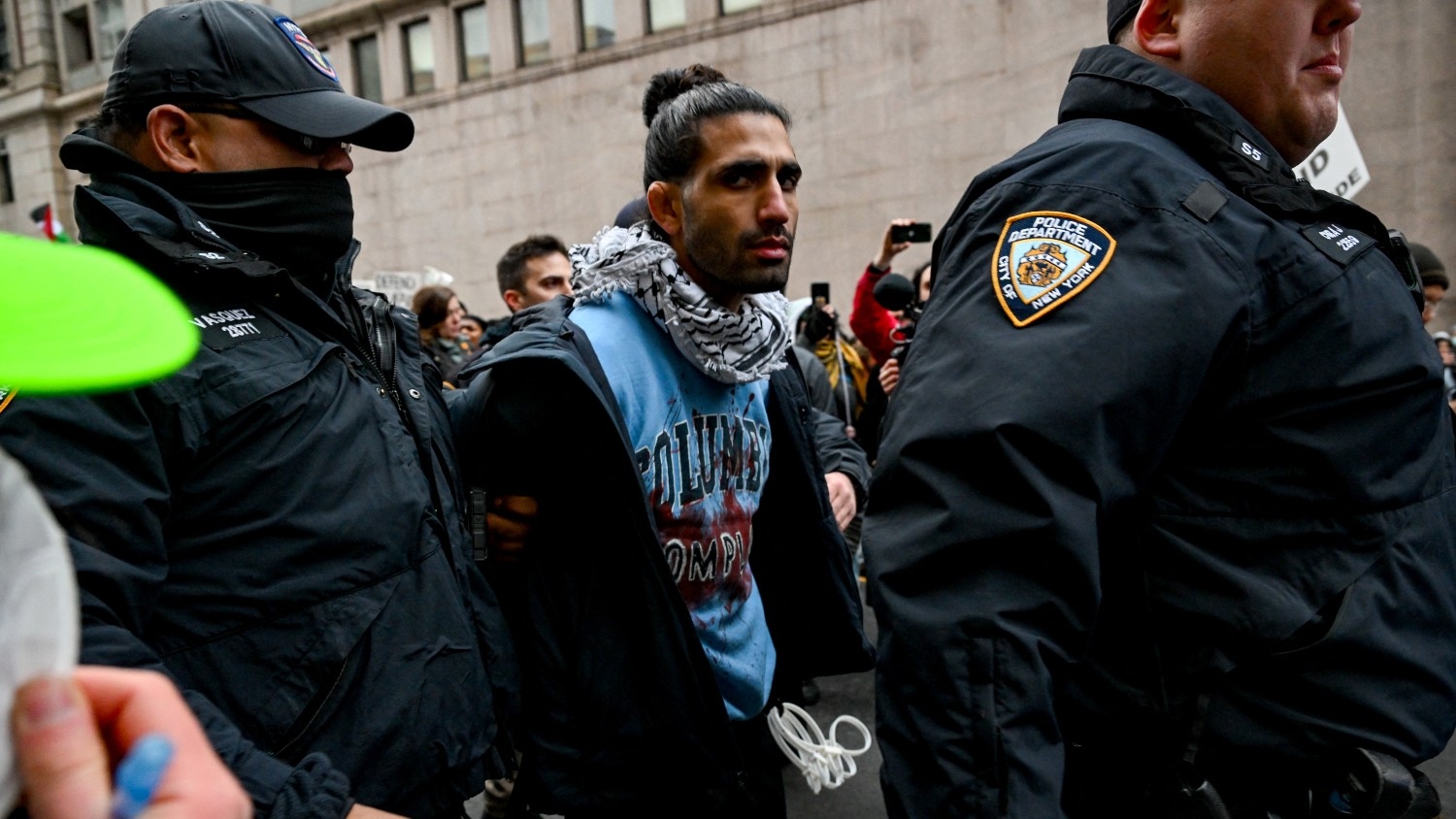
A newly released report outlines how US laws around terrorism post-9/11 were largely shaped by a decades-long effort of pro-Israel groups to target anti-Palestinian activism and sentiments inside and outside the country.
The 28-page report, published by the Center for Constitutional Rights (CCR) and Palestine Legal, goes back five decades into US history to highlight the intersection between the use of terrorism language and the demonisation of Palestinian resistance groups, which was spearheaded by pro-Israel groups, including the Anti-Defamation League and American Israel Public Affairs Committee.
"The anti-Muslim thrust of 'War on Terror' policies was built on a pre-existing foundation of hostility to the Palestinian liberation movement," the paper said.
The release of the report comes amid a resurgence of laws introduced across the country to quell pro-Palestinian activity, especially at college campuses.
Since the war in Gaza began in October, the Anti-Defamation League sent a letter to 200 universities calling for Students for Justice in Palestine (SJP) chapters to be banned for "material support for terrorism". That rationale was used by the state of Florida to ban SJP from university campuses.
US Congresswoman and former House Speaker Nancy Pelosi has called on the FBI to investigate pro-Palestinian protesters.
During a congressional committee in November, lawmakers wanted to investigate Muslim charities and Palestinian non-profits to see if they had financial ties to Hamas.
“In passing anti-terrorism laws, legislators have made little secret that a primary aim has been to repress Palestinian freedom struggles,” Darryl Li, author of the paper, said in a statement provided to Middle East Eye.
“This briefing paper connects the dots, showing how the anti-Muslim policies of the post-9/11 era were built on a foundation of anti-Palestinian animus.”
America's early terrorism laws targeted Palestinians
The report reaches back in history to 1969, in the first mention of the word "terrorism" in a federal statute.
The law, the Foreign Assistance Act, required that the UN agency for Palestinian refugees (Unrwa) ensure no US aid money would go to Palestinian refugees who receive "military training as a member of the so-called Palestine Liberation Army" or anyone "who has engaged in any act of terrorism".
In 2024, the US moved to suspend funding to Unrwa, based on Israeli allegations that a few members of the agency were involved in the Hamas-led 7 October attacks on southern Israel.
The first time US Congress labelled a non-state group a terrorist organisation was in 1987, when it designated the Palestine Liberation Organisation (PLO) as a terror group.
The report also states that the first US law allowing private citizens to file lawsuits regarding terrorism, the Antiterrorism Act of 1992, "was drafted to target the PLO and has been heavily used by dual citizens of Israel and the United States".
“Understanding the ways that Israel and its allies have shaped anti-terrorism laws is essential to challenging their use today as a weapon to shut down both humanitarian lifelines to Gaza in furtherance of this genocide, and the movement in the US that is trying to stop it,” said Dima Khalidi, director of Palestine Legal.
Palestine remains at centre of US discrimination
Before the start of the war in Gaza, rights groups began to raise concerns about how US legislation targeting support for Palestine could be used to target and attack other political activism.
The main concern centred around the anti-boycott laws that are now in place in dozens of states across the state. The enacted laws state that anyone who is engaging in a boycott of Israel cannot do business with the state governments.
While several lawsuits were filed in court to challenge these laws based on claims that they violated the First Amendment's free speech protections, many states still carry anti-boycott laws in some form.
Now, activists are worried that these anti-boycott laws could be used to target other groups such as climate activism or movements against gun violence.
"Advocates and scholars working at the intersection of national security, civil liberties, and humanitarian issues can no longer ignore the anti-Palestinian origins and uses of many of the laws and policies they are concerned with," Diala Shamas, senior staff attorney at the CCR, said in a statement.
"In 2024, ignoring Palestine in this work is clearly no longer an option."
Middle East Eye propose une couverture et une analyse indépendantes et incomparables du Moyen-Orient, de l’Afrique du Nord et d’autres régions du monde. Pour en savoir plus sur la reprise de ce contenu et les frais qui s’appliquent, veuillez remplir ce formulaire [en anglais]. Pour en savoir plus sur MEE, cliquez ici [en anglais].


